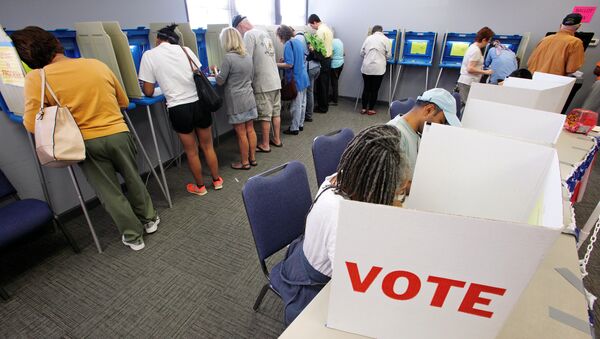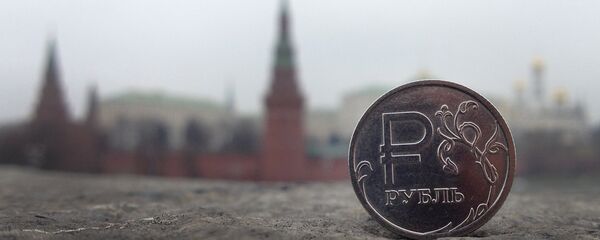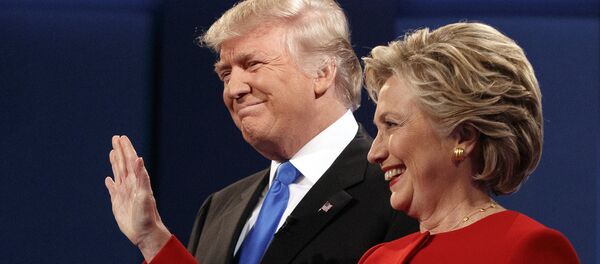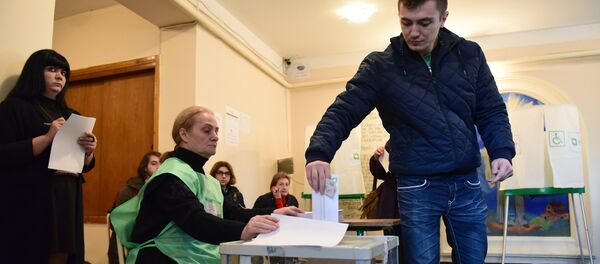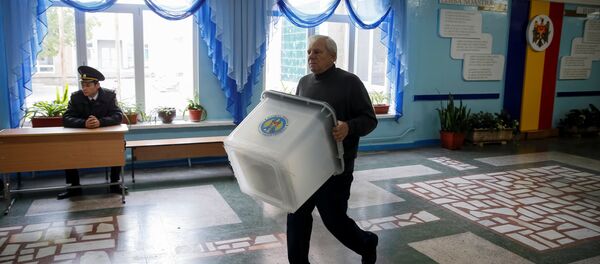When people go to the polls in the United States, they are not technically voting for a candidate for president — they are voting for electors who have pledged to vote for a certain candidate once the electoral college convenes. It is extremely rare, and yet entirely possible, that electors break their pledge and vote for a different candidate.
This is called a "faithless elector." There are fines or other punishments for being a faithless elector, but this varies from state to state. In 1972, electoral college member Roger MacBride had pledged to vote for Richard Nixon but decided instead to cast his vote for John Hospers, the Libertarian Party candidate.
The so-called Founding Fathers were quite uncomfortable with the idea of majority rule, which they referred to as "tyranny of the majority." As James Madison noted, "Remember, democracy never lasts long. It soon wastes, exhausts, and murders itself. There was never a democracy yet that did not commit suicide." The electoral college was seen as a final line of defense, should the people choose someone not to the liking of the elite.
Furthermore, the electoral college was devised as a consequence of the power of the slave owners at the time of the founding of the United States.
At the constitutional convention in 1787, the so-called founding fathers considered a simple popular vote, but decided against it for fear that black people might have an impact on the election. James Madison stated: "There was one difficulty however of a serious nature attending an immediate choice by the people. The right of suffrage was much more diffusive in the Northern than the Southern States; and the latter could have no influence in the election on the score of Negroes. The substitution of electors obviated this difficulty and seemed on the whole to be liable to the fewest objections." The electoral college was explicitly designed to guarantee that African-Americans had no bearing on the political process.
There are a relatively small number of swing states that determine the outcome of the election. The East and West Coast states always have their electoral votes awarded to the Democrat, the South and the Great Plains always go to the Republicans, and the candidates spend virtually all of their time in places like Florida, Ohio, or Virginia, which could go either way.
Each of the 50 states is assigned a certain number of electoral votes, equal to the number of the state's Representatives (lower house members, proportional to the state's population) and Senators (two for each state regardless of size). The District of Columbia, the country's capital district that encompasses Washington, gets three electoral votes but does not have any Representatives or Senators — a bizarre arrangement that civil rights leaders have long suggested has to do with Washington's historically large Black majority.
Of course, in the end George W. Bush became the president, as a result of a Supreme Court decision to halt a recount effort. The Governor of the state of Florida at the time, by the way, was George's brother Jeb Bush.
Other than Bush, Presidents Hayes in 1876 and Harrison in 1888 lost the popular vote but still prevailed in the electoral college. John Quincy Adams lost both the popular and electoral vote!
It is possible that no candidate will win a majority in the electoral college. If third-party candidates manage to win enough states to deadlock the electoral college, then the decision is made by the legislature. The three candidates who received the most electoral votes will be considered by the House of Representatives, who will choose the president from among them. The Senate will choose the vice president from among the two VP candidates who received the most electoral votes.
Nearly 6 million people are legally prohibited from voting because of a felony conviction, as of the latest census data. In keeping with the racist nature of the prison system, this affects Black people most intensely. 7.7 percent of African-Americans are prohibited from voting, a figured that reaches as high as 23 percent in Florida!
Then there's money. There is very limited public financing of elections in the United States — from which third parties are generally excluded by virtue of a 5-percent threshold to qualify for federal funds. Instead, private donations compose the vast majority of election spending.
Throughout US history there have been varying levels of regulation governing how much can be donated and how it must be disclosed. The floodgates to virtually unlimited corporate donations were opened by the 2010 Supreme Court decision known as Citizens United. In that case, the court reasoned that because money is a form of speech, legal limitations on donations constitute a violation of the First Amendment, which guarantees free speech.
So there you have it, the self-proclaimed greatest democracy on the planet: where only "eligible" citizens in a handful of states that are flooded with hundreds of millions of dollars of advertising funds get to choose the people who choose the so-called "leader of the free world."
Walter Smolarek is the producer of Loud & Clear with Brian Becker on Radio Sputnik.
